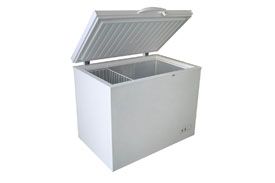
Appliances used in homes and businesses, freezers are made to very low temperatures in order to store and preserve a variety of perishable goods. They are essential for minimizing food waste, offering convenience, and facilitating extended storage of different products. Food, such as meat, vegetables, fruits, and cooked meals, may be frozen and kept in freezers for extended periods of time. Freezers come in several varieties, each with unique features and benefits. These include upright freezers, chest freezers, and walk-in commercial freezers. Homes, supermarkets, restaurants, and other establishments that deal with food all utilize them extensively. By eliminating heat from the storage compartment, freezers provide a sub-zero environment that inhibits the growth of bacteria and slows down the natural deterioration of food. For freezer use to be both efficient and successful, proper organization and temperature control are essential.
According to IS standard IS 7872:2020, all freezers are now covered by the required ISI Certification Scheme.
This standard describes the construction specifications and testing methods, including type tests for performance, for evaluating the efficiency and capacity of freezers. According to the standard, freezers ought to be strong and durable enough to withstand normal handling, use, and transportation. This pertains to freezers that have storage capacity ranging from fifty to one thousand liters.
Without the ISI Mark, this product cannot be marketed, imported, or exported into the Indian consumer market.
Indian Standards Institute, or ISI was renamed the Bureau of Indian Standards (BIS) in 1987. The official mark that the Bureau of Indian Standards provides for manufacturers of various goods is the ISI Mark. It is used to indicate compliance with Indian standards (IS) set by the Bureau of Indian Standards (BIS) and has been used as a conformity marking for industrial products. Manufacturers received permission from BIS to use the ISI Mark on items that comply with relevant Indian requirements through the product certification program.
Only manufacturers (domestic or foreign) who produce the finished product will be awarded ISI Certification. This will not be given to any product importers, traders, dealers, or distributors.
The following documentation is required to get an ISI certification:
For more detailed information, please click here.
There are two approaches for Indian manufacturers to become certified with the ISI Mark:
Regular Procedure
With the possible exception of cases deemed "All India first," which might take up to 180 days, the licensing procedure is expected to be finished in 120 days. This timeline starts on the day the application is received, assuming that at different points in time the documentation, unit assessment, and product conformance are all deemed acceptable.
Step 1: Manufacturing Unit Customization in Compliance with Applicable Indian Standards
Step 2: Submission of the Application Form
For more detailed information, please click here.
Simplified Procedure
This is a much faster process than the standard procedure. After a factory inspection is deemed satisfactory and the initial evaluation establishes that the sample complies with the applicable Indian Standard(s), the license application process is expected to be finished in 30 days.
Step 1: Adapting the Manufacturing Unit to Comply with the Relevant Indian Standard
Step 2: Sample Testing
For more detailed information, please click here
The process of obtaining ISI Mark Certification for Foreign Manufacturers typically includes the following steps:
Step 1: Application
Step 2: Query Raised (If Any)
For more detailed information, please click here.
Brand Liaison provides helpful support for achieving ISI Mark Certification. Among our offerings are:
Please click here to get in contact with our team of specialists for a deeper explanation of the paperwork and steps needed to get ISI Mark Certification.